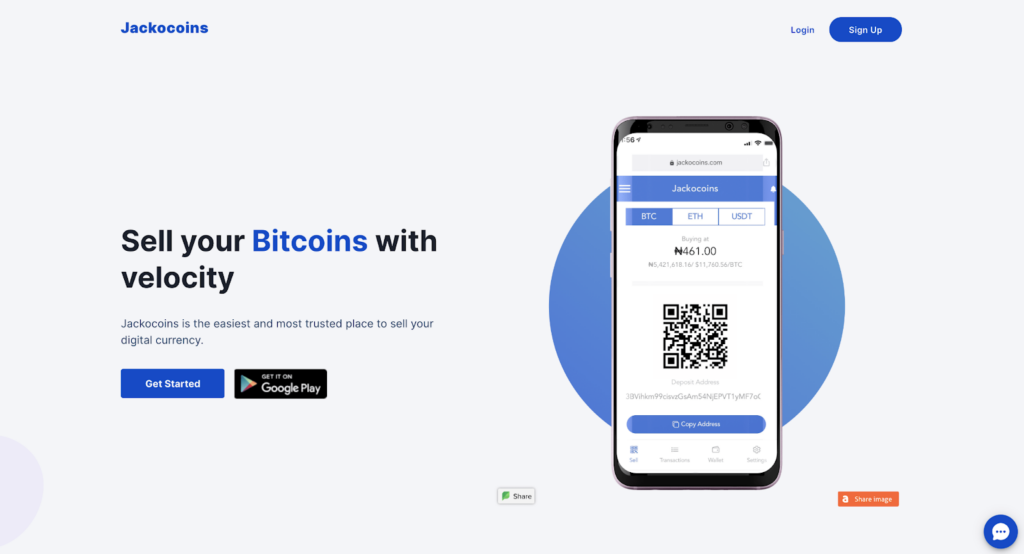
The presence of cryptocurrency changes how we invest, pay, and create wealth in Nigeria. It offers new opportunities beyond imagination. However, there’s a need for regulation to ensure the safety and security of users. The Nigerian government and international governments have established guidelines to govern crypto trading. This guide will walk you through the legal landscape of cryptocurrency in Nigeria, the regulations that govern its use, and how Jackocoins can help you navigate this complex but rewarding innovation.

Nigeria’s Stand on Cryptocurrency
Is cryptocurrency banned or not?
The section will expose Nigeria’s stance on cryptocurrency and digital assets.
In December 2023, the government of Nigeria lifted its ban on cryptocurrency. By January 2024, the Nigerian Securities and Exchange Commission (SEC) had shifted from its previously stringent stance, prompting the Central Bank to issue guidelines for banks to open cryptocurrency accounts.
This reversal was influenced by two main factors: the ineffectiveness of the ban (with Nigerians being the world’s second-largest users of cryptocurrencies) and the realization that the large, developing market presented significant commercial opportunities.
Nigeria returned to the crypto spotlight in early 2024 due to currency fluctuations and a conflict with Binance over untraceable funds. By mid-March, media outlets reported the detention of two executives.
By May 2024, reports indicated that the national security advisor was preparing to label crypto trading as a national security threat, leading to a crackdown on peer-to-peer (P2P) trading, the primary method of crypto transactions for many Nigerians.
Throughout these developments, the authorities have displayed an inconsistent approach. Despite efforts to restrict crypto activity, Nigerians remain the most enthusiastic group of crypto users globally.

Crypto Laws and Regulations in Nigeria
Meanwhile, this year brings unprecedented clarity to the crypto landscape in Nigeria. At the end of 2023, the Central Bank of Nigeria reversed the 2021 ban on financial institutions dealing with cryptocurrencies, paving the way for a regulated digital currency market.
The Central Bank of Nigeria made it bare that the call to regulate the activities of cryptocurrency and crypto assets stems from global trends and patterns in the financial space. The new guidelines bring much-needed certainty to the crypto market, aligning with the 2022 recommendations from the Financial Action Task Force (FATF) and rules from Nigeria’s Securities and Exchange Commission (SEC) on the issuance, offering, and custody of digital assets.
Despite the new regulations, banks and financial institutions remain prohibited from holding, trading, or transacting in virtual currencies on their accounts, and cash withdrawals are still restricted. Additionally, the guidelines prevent clearing third-party cheques through crypto accounts and limit withdrawals to two per quarter. However, financial institutions can facilitate cryptocurrency transactions for customers, provided they comply with stringent KYC (Know Your Customer) and AML (Anti-Money Laundering) requirements.
Moreover, the regulations require cryptocurrency exchanges and digital asset brokers to maintain naira-denominated bank accounts exclusively. This initiative aims to integrate cryptocurrency transactions within Nigeria’s banking system and ensure compliance with regulations.
Nigerian’s Interest in Crypto
Nigerians are eager to preserve the value of their money as inflation soars. Undoubtedly, this stems from the high inflation ravaging the Nigerian economy on a large scale. In June 2023, the central bank of Nigeria allowed the naira to float freely, resulting in a devaluation of over 40% by November.
Additionally, foreign exchange shortages escalate the situation, making cryptocurrencies increasingly attractive.
Also, traditional banking institutions impose high costs on money transfers in and out of Nigeria. For a population like Nigeria heavily dependent on remittances, cryptocurrencies offer a more cost-effective and faster alternative. In 2022, Nigeria received over $20 billion in remittances, underscoring the need for a more affordable transfer method. A World Bank study on remittances to Nigeria and other sub-Saharan countries reported fees as high as 36% for every $200 sent from abroad. In contrast, crypto exchanges charge only a small fraction of this amount.

Crypto Trading and Taxation in Nigeria
In May 2023, former President Buhari signed a bill into law to clarify the tax status of digital assets amid increasing crypto adoption.
This legislation introduced a capital gains tax approach, imposing a 10% levy on the disposal of all digital assets, including cryptocurrencies. The tax applies to individuals, businesses, and any entities residing in Nigeria. Similarly, the amount owed is determined by the difference between the purchase and sale price of digital assets.
Crypto enthusiasts in Nigeria should meticulously track their transactions, maintaining detailed records of all purchases, sales, and other transactions to ensure compliance with this law. The responsibility for accurate reporting lies with the individual.
What the Future Holds for Nigeria’s Crypto trading
The legislative uncertainty and potential ban on P2P trading in Nigeria have dampened the interest among Nigerians. If this move is achieved, it could negatively impact the broader crypto ecosystem and perceptions of Nigeria’s crypto future.
Nigeria’s decision to lift its crypto ban and enhance oversight of digital assets aligns with the actions of other African nations and responds to the demands of its citizens. A 2023 Consensys survey showed that 50% of respondents favored regulations that encourage and protect investors.
However, challenges to the growth of crypto in Nigeria still exist. New AML and KYC measures need to specify whether individuals must declare exact transaction limits or virtual asset trades.
Likewise, stronger regulations are needed to create a safer environment and provide legal recourse when necessary. This will enhance domestic usage and increase the confidence of international investors, who are currently discouraged by perceived risks.
Lastly, lifting the crypto trading ban suggests Nigeria is moving towards a more supportive stance on crypto and blockchain, recognizing their potential economic benefits. Effective regulation would balance protection with innovation, allowing the crypto sector to grow while safeguarding legitimate participants.

The Legal Landscape with Jackocoins
Jackocoins is Nigeria’s No.1 crypto exchange that offers diverse services to help you buy, sell, and store your cryptocurrency safely and legally. With Jackocoins, you can:
- Buy and sell cryptocurrency using a variety of payment methods
- Store your cryptocurrency in a secure wallet
- Access real-time market data and analysis
- Enjoy competitive fees and rates
Jackocoins is committed to legal compliance and has obtained all necessary licenses and registrations to operate in Nigeria. By using Jackocoins, you can ensure that your cryptocurrency transactions are safe, secure, and legal. Jackocoins offer:
- Convenience: Jackocoins offers a user-friendly platform that makes it easy to buy, sell, and store cryptocurrency.
- Security: Jackocoins uses advanced security measures to protect your cryptocurrency and personal information.
- Compliance: Jackocoins complies with Nigerian regulations, ensuring your transactions are legal and secure.
- Competitive fees: Jackocoins offers competitive fees and rates, ensuring you get the best value for your money.
Conclusion
Cryptocurrency regulation in Nigeria is complex and challenging to navigate without help. However, with the right guidance and support, you can be sure your transactions are safe, secure, and legal. By choosing Jackocoins, you can enjoy the benefits of cryptocurrency while avoiding the risks. Sign up with Jackocoins today and start your crypto journey!
Visits: 8916

Your article helped me a lot, is there any more related content? Thanks!